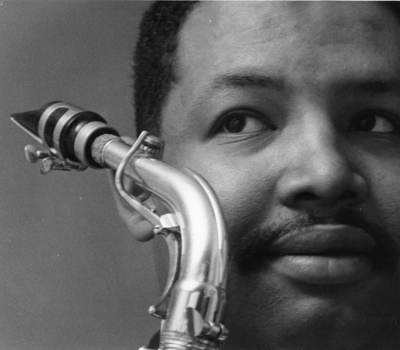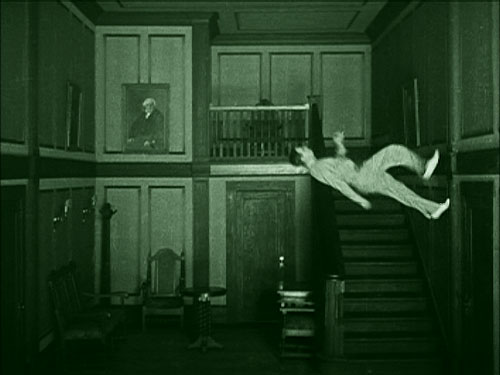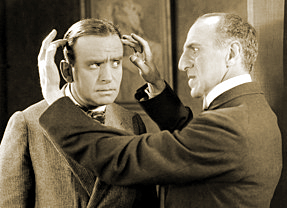From the August 3, 2001 Chicago Reader. –J.R.
This month the Film Center is inaugurating a monthly “Music Movies” series, five programs that will play on Sundays and Thursdays. The focus in August is jazz films, and the programs include four classics I first saw years ago and four others I’ve just seen for the first time. The worst film in the bunch (Cannonball) happens to be the newest one, and the two most interesting (Cry of Jazz and Black and Tan) are the oldest, though I don’t see any particular trend in this.
It’s difficult to speak of any consistent evolution or devolution in jazz films, because each one is the product of a particular taste and sensibility. One rule I use when evaluating these films is how much we’re allowed to follow the music. Another rule, less obvious and more purist, is how important the on-screen listeners are — which matters a good deal, because jazz at its most exciting is a collective experience involving the audience as well as the interacting musicians. If the people on-screen aren’t seen listening when music is being played, we’re discouraged from listening intently.

This helps explain why I was driven batty by the new 23-minute video about Cannonball Adderley, a musician who has given me a lot of pleasure. Read more
Written for The Unquiet American: Transgressive Comedies from the U.S., a catalogue/ collection put together to accompany a film series at the Austrian Filmmuseum and the Viennale in Autumn 2009. — J.R.

Nominally a rather silly satire about various fads in 1919 America ranging from Ouija boards and diverse superstitions to crackpot psychological experiments, this energetic Douglas Fairbanks comedy -– the first directorial effort of Victor Fleming, Fairbanks’s former cinematographer –- is chiefly a free-form adventure.
Like the projectionist’s dream in Keaton’s Sherlock, Jr., this is basically an occasion for the star’s athletic stunts and choreographic bursts of ardor and enthusiasm, as well as various playful breaches of the ordinary rules of space and time. Most of the latter occurs within an extended dream sequence that virtually opens the film -– set in motion by a sinister secret experiment being conducted by a mad scientist on the wealthy and brash hero, Daniel Boone Brown (Fairbanks) –- but the climactic rain storm and flood at the end, as the film shifts from New York to the countryside, seems almost equally dreamlike and arbitrary.
 Read more
Read more
Written for The Unquiet American: Transgressive Comedies from the U.S., a catalogue/ collection put together to accompany a film series at the Austrian Filmmuseum and the Viennale in Autumn 2009. — J.R.

I was slow to appreciate this masterpiece, which I now regard as Martin Scorsese’s best feature, and I credit Wim Wenders for convincing me that there was far more going on in this movie than I was initially prepared to see. Perhaps the key to this creepy fable about the American obsession with celebrity and media comes in the climactic comic monologue of Rupert Pupkin (Robert De Niro), brimming with self-hatred and shame about his family and his nondescript suburban/ethnic background, which in a way all of the preceding film prepares us for. The script by Paul D. Zimmerman, a onetime film critic at Newsweek, manages to be both non-specific and spot-on about everything that separates the haves from the have-nots -– a subject Scorsese seems to know like the back of his hand, and one made all the more complex by the fact that it’s often hard to separate the privileged from the deprived in this film (a fact spelled out by another troubling climax, the confrontation between Jerry Lewis and Sandra Bernhard). Read more




